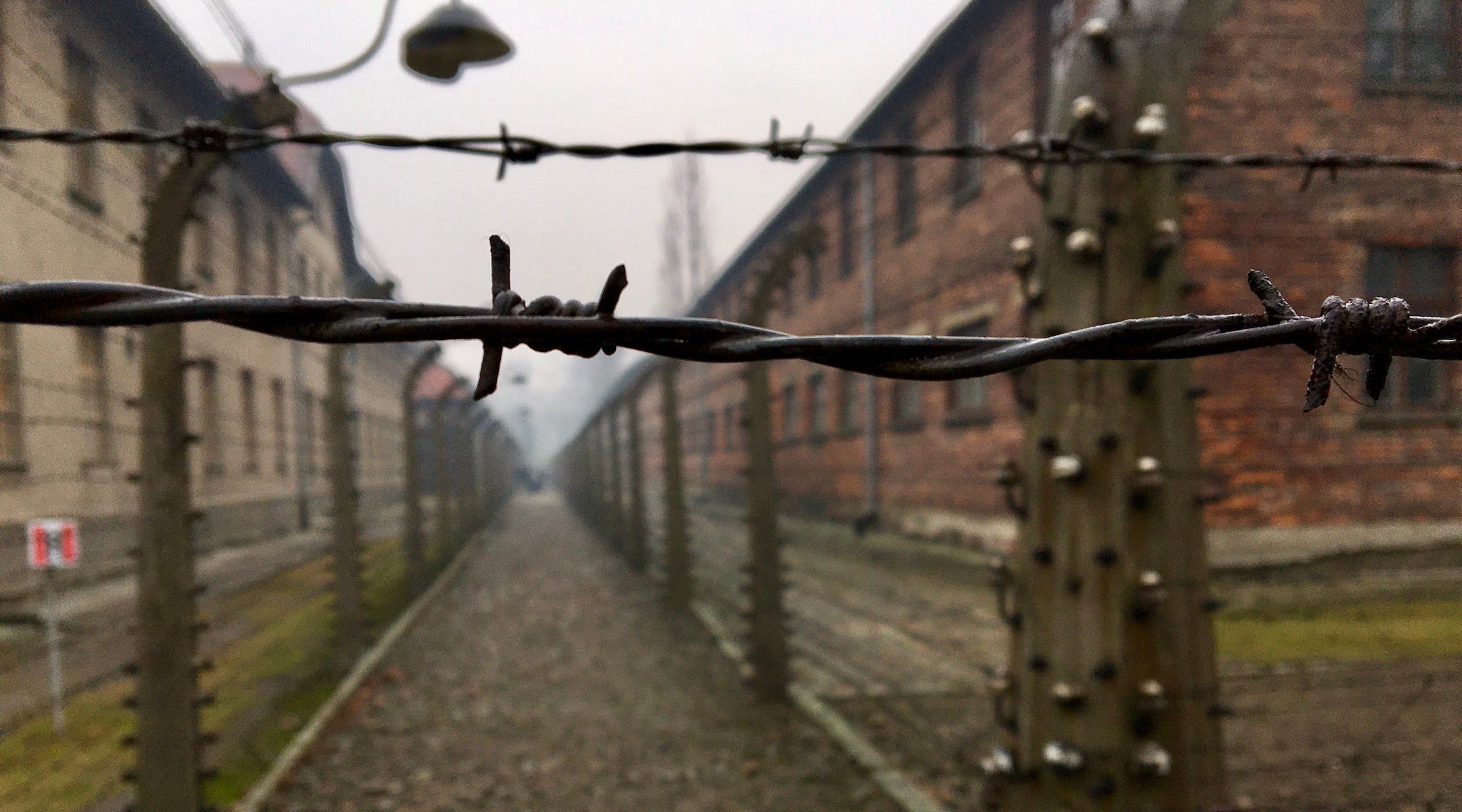An auction house in Germany canceled the sale of hundreds of items that belonged to Holocaust victims a day before it was set to take place.
The Felzmann auction house planned to offer 623 artifacts, including letters from concentration camps and documents detailing Nazi crimes, in the western German city of Neuss on Monday. After outcry from a Holocaust survivor group, the auction was canceled on Sunday and its listing disappeared from the house’s website by Sunday afternoon.
The auction was canceled shortly after being condemned by the International Auschwitz Committee, a group of survivors based in Berlin. The group’s executive vice president, Christoph Heubner, called the sale a “cynical and shameless undertaking” that left survivors “outraged and speechless.”
“Their history and the suffering of all those persecuted and murdered by the Nazis is being exploited for commercial gain,” Heubner said in a statement on Saturday. He demanded the auction house cancel its event, saying the contents “belong to the families of the victims” and “should be displayed in museums or memorial exhibitions.”
Poland’s foreign minister Radosław Sikorski said on Sunday he confirmed with his German counterpart, Johann Wadephul, that the “offensive” auction was aborted.
“Respect for victims requires the dignity of silence, not the din of commerce,” Sikorski said on X. He also appealed for artifacts to be handed to the Auschwitz Museum.
Days before cancelling without a statement, the auction house defended its planned sales to the Frankfurter Allgemeine Zeitung, saying that private collectors used the items for “intensive research” and their activity contributed not to “the trade in suffering, but the preservation” of memory.
Titled “System of Terror, Vol. II,” the catalog showed items dating from 1933 to 1945. The first part of a privately collected trove of Holocaust letters was sold by the auction house six years ago, according to the Frankfurter Allgemeine Zeitung.
Many items came from the Auschwitz and Buchenwald concentration camps. A postcard from Auschwitz to Krakow in 1940 had a starting bid of $580, with a listing advertising the prisoner’s “very low inmate number” and their letter’s “very good condition.”
Other listings were expected to fetch much higher sums. A collection of 15 letters by a prisoner in the Ravensbrück camp started at $3,250. Another stash of letters between a Jewish family started at $14,000, described by the auction house as “rare” because “only a few Jews were alive” in 1943.
Beyond correspondence, the auction offered belongings such a yellow Star of David with “signs of wear,” three journal notebooks from an anonymous Polish Jew who survived the war, and identification documents of Jews who fled.
The catalog was also littered with Nazi documents. Among these was a 1937 medical report from the Dachau camp, which detailed the forced sterilization of a prisoner “by the camp doctor” with “the signature of an SS man.” Another listing showed a file by Auschwitz commandant Arthur Liebehenschel, with notes preparing for his post-war trial defense in Krakow in 1947, which the auction house said had not yet been published.
Other documents showed the records of companies forcefully sold to Nazis.
Previous auctions of artifacts linked to Nazi crimes have been canceled in the United States over recent years.
Two 17th-century paintings were taken out of an Ohio auction in September after a Holocaust art restitution organization determined they had been looted from a German Jew’s collection during World War II. In 2023, Christie’s called off the sale of 300 pieces from a jewelry collection belonging to Heidi Horten, whose husband Helmut Horten bought up Jewish businesses forcefully relinquished by their owners in the 1930s.
And in 2021, an auction house in Brooklyn suspended the sale of a 19th-century ledger claimed by a Jewish community in Romania.
Power the news that matters to you. Before 2025 ends, help JR’s independent, award-winning newsroom document Jewish history in real-time.




